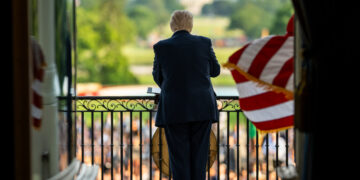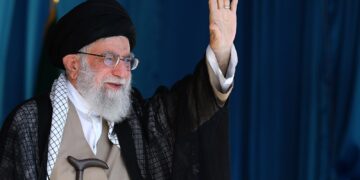June 12, 2025
The tense tussle over Trump’s Iran strategy

On May 25, President Donald Trump excitedly declared that a nuclear deal with Iran was just around the corner. Three weeks later, the president is noticeably more sanguine about reaching an agreement. “Iran is acting much differently in negotiations than it did just days ago,” Trump commented to Fox News this week. “Much more aggressive.”
The negative vibes extend to the Iranian side. Iranian Supreme Leader Ayatollah Ali Khamenei, still stung by his experience in 2018, when Trump pulled the United States out of the Joint Comprehensive Plan of Action, or JCPOA, and re-imposed additional sanctions on Iran, is giving lectures that trusting the Americans is a fool’s errand.
All of this is occurring at a time when the Iran hawks in Washington are trying to pressure the White House to ditch the negotiations and throw their support behind Israeli Prime Minister Benjamin Netanyahu’s bid to use military force to destroy Iran’s nuclear infrastructure. Politico reported this week that conservative talk show host Mark Levin, whose feed on X is generally one long doom-scroll about Iran’s nuclear program, pushed Trump into approving a U.S. military operation against Iran during a private lunch at the White House. Former Fox News host Tucker Carlson then pushed back against Levin in a long social media post.
These tensions reflect the fact that Trump is now waging two Iran-related battles simultaneously: one against Iran, and the other against competing camps of advisers. The second battle shouldn’t be cast away as the typical Washington-style palace intrigue, because depending on who wins Trump’s ear, the U.S. will either continue the diplomatic process or sacrifice diplomacy for a war that could very well get out of control.
More on Middle East

Featuring Rosemary Kelanic
June 13, 2025

Featuring Rosemary Kelanic
June 13, 2025

Featuring Dan Caldwell
June 13, 2025



